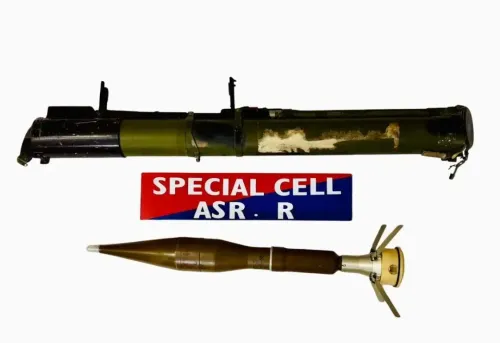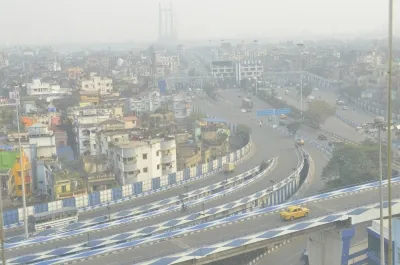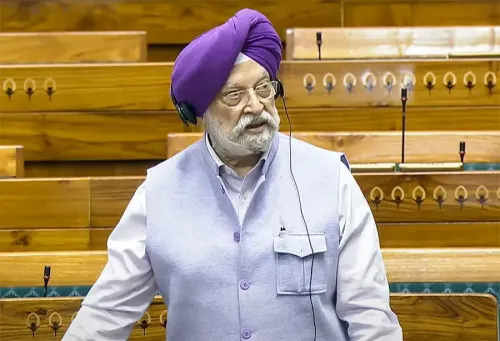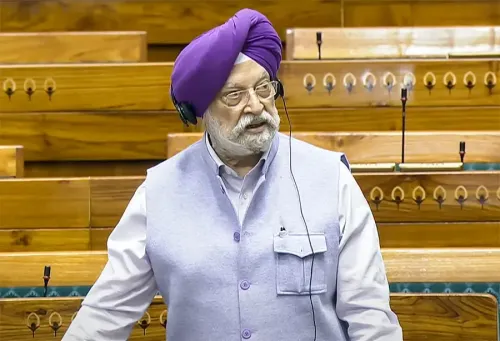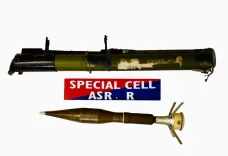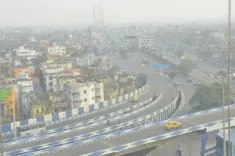How is Surat Addressing Illegal Creek Encroachments to Prevent Flooding?
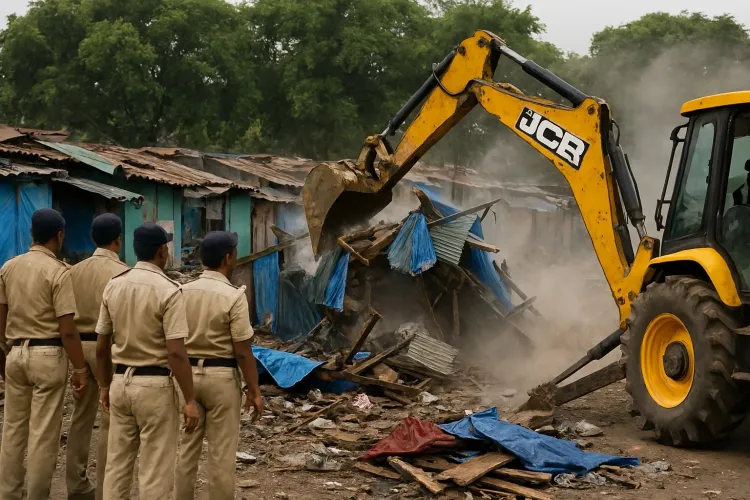
Synopsis
Key Takeaways
- Surat is intensifying efforts to combat flooding.
- Illegal encroachments along creek banks are being demolished.
- Coordination between authorities has improved significantly.
- Local support is crucial for the success of the initiative.
- Similar actions are being taken across Gujarat.
Surat, Aug 5 (NationPress) In light of the recent establishment of a high-level committee tasked with combating flooding in the city's creeks, efforts to remove illegal encroachments along the creek banks have intensified.
After demolishing unlawful structures in Jawahar Nagar near Koyali Creek last week, the Surat Municipal Corporation (SMC) launched another substantial demolition operation in the Sahajanand area on Tuesday.
Initially faced with some local opposition, the demolitions gained momentum as residents and property owners began to support the authorities. The lack of any legal impediments further facilitated rapid action.
Chaired by Municipal Commissioner Shalini Agarwal, the committee has improved coordination between the SMC and state departments, allowing for decisive action against constructions encroaching on creek land—an essential factor contributing to urban flooding during recent monsoons.
In the Boot Bhavani area of the Varachha zone alone, 19 illegal buildings had emerged along the creek.
With no legal issues obstructing progress, demolition activities commenced on Saturday under the supervision of civic officials. Authorities have stressed that clearing natural drainage channels is vital for mitigating flooding and ensuring public safety.
The operation is set to extend into other affected areas in the upcoming weeks as the SMC strives to reclaim the city’s waterways from years of illegal occupation.
Gujarat has experienced a widespread series of demolition drives across its urban and semi-urban regions over the past year, targeting illegal encroachments, unauthorized constructions, and properties linked to criminal activities.
The Ahmedabad Municipal Corporation executed one of the most extensive operations at Chandola Lake, eliminating over 1.5 lakh sq m of illegal encroachments in Phase 1, followed by Phase 2 to clear an additional 2.5 lakh sq m, deploying 3,000 police personnel.
Simultaneously, in the Malek Saban Lake area, around 450 unauthorized homes were demolished, reclaiming 15,200 sq m of public land. In Junagadh’s Uparkot fort area, 59 illegally erected structures covering 16,000 sq m were taken down, recapturing land valued at over Rs 50 crore.
The Jamnagar Municipal Corporation took action in the Bedi port area against encroachments by the so-called Saicha gang, demolishing 11 major structures and freeing land worth Rs 18 crore.
In Bhavnagar, a High Court-ordered operation resulted in the demolition of 85 religious structures, including four temples and a mosque, near the Bortalav area. Kandla port (Kutch) saw one of the most significant clearances, with 580–600 illegal huts being bulldozed to restore over 150 acres of creek-side land, estimated at Rs 400 crore in value.
In Borsad (Anand district), the municipality cleared 220 illegal structures, primarily homes, reclaiming land valued at Rs 40 crore.
Meanwhile, Surat’s Varachha zone, which is susceptible to creek flooding, began a focused creek clean-up in Jawahar Nagar and Sahajanand, with municipal teams demolishing illegal constructions on the banks of Koyli Creek—initially met with resistance, but ultimately gaining local support.
In Rajkot, 60 properties owned by habitual offenders were demolished as part of a state-level crackdown on criminal encroachments.

